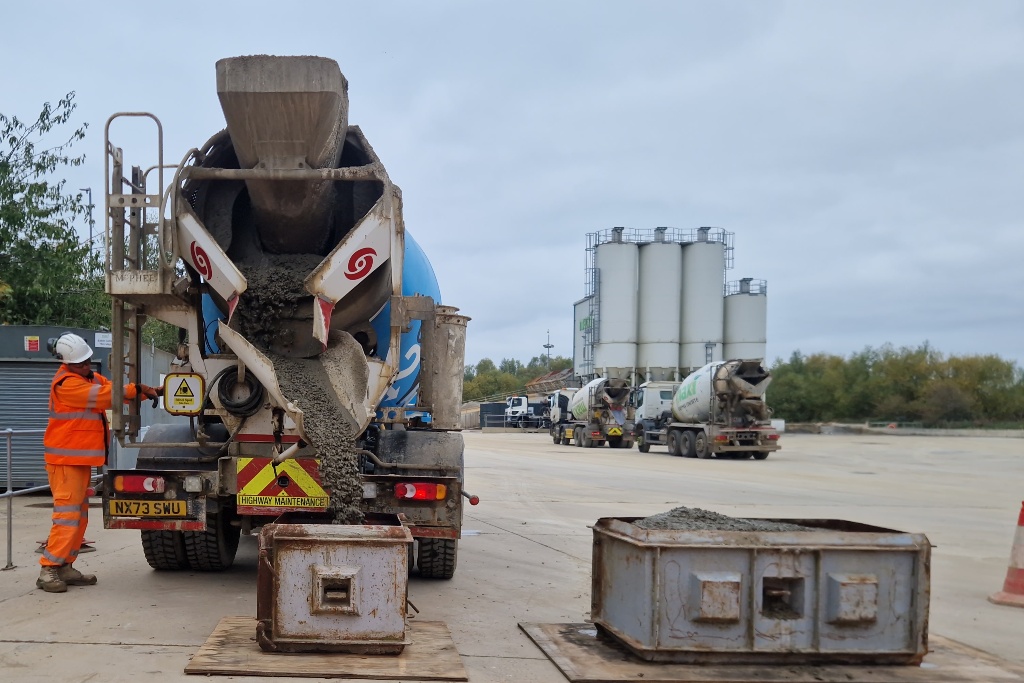Concrete trials show viability of recycling fines

First reported on The Construction Index
30 Second Briefing
A UK trial led by the Materials Processing Institute has demonstrated the feasibility of using recycled concrete fines (RCF) to replace approximately 20% of clinker in CEM II cement, significantly reducing its carbon footprint. Conducted at Holcim UK’s Whetstone plant, the trial is part of the UKRI's 'Decarbonising Concrete' programme and involves key industry players like Mott MacDonald and Aston University. RCF, traditionally a waste product, is now poised to become a sustainable alternative, pending further testing and integration into British Standards BS 8500 by 2027.
Technical Brief
- The trial at Holcim UK's Whetstone plant demonstrated using recycled concrete fines (RCF) to replace 20% of clinker in CEM II cement.
- RCF, a waste product from demolished buildings, reduces the carbon footprint by substituting clinker, the most carbon-intensive component.
- The project is part of the UKRI's 'Decarbonising Concrete' programme, involving Holcim UK, Mott MacDonald, and Aston University.
- The trial's success suggests RCF could soon be a viable alternative to Portland cement in future construction projects.
- Current standards permit RCF under EN 197-6, but it awaits harmonisation with BS 8500.
- Further testing and certification are required before RCF-based cement can be included in revised British Standards.
- Practitioners could apply these findings by incorporating RCF into cement formulations to reduce emissions.
- The research highlights the potential for industry collaboration to drive sustainable construction innovations.
- Limitations include the need for ongoing testing and the pending integration of RCF into British Standards.
Context From Recent Coverage
- Over the last 90 days, we've tracked 11 stories tagged with "Sustainability," reflecting a consistent interest in sustainable construction practices, as seen in Holcim UK's clinker replacement initiative.
- The "Contracts for Innovation: Decarbonising Concrete" project aligns with efforts in Leicestershire to innovate in ground engineering, leveraging local sites like Whetstone and Tilbury for trial implementations.
Related Industries & Products
Construction
Quality control software for construction companies with material testing, batch tracking, and compliance management.
Mining
Geotechnical software solutions for mining operations including CMRR analysis, hydrogeological testing, and data management.
QCDB-io
Comprehensive quality control database for manufacturing, tunnelling, and civil construction with UCS testing, PSD analysis, and grout mix design management.
